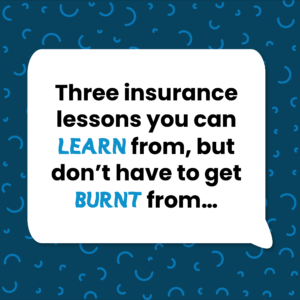Find out why approaching your provisional tax, accounting and SMME as one entity just makes cents
We chatted with Cherie Kemp, a decade-and-more-long accountant, who’s been an important part of TTT since 2019.
What is provisional tax? And do I have to pay it?
If you’re a salaried employee, you might think provisional tax doesn’t concern you. Your company pays your PAYE and you receive your IRP5 each tax season. Sorted, right? Not quite.
As Cherie explains, if you’re a salaried employee but you also have other types of income (which are things you often “don’t get an IRP5 for”), then you have to pay provisional tax. Examples of this additional income include rental fees and when “you sell a lot of your assets and you get capital gain,” says Cherie. This also includes investments where you make noteworthy income off of the interest.
Okay, so I have side hustles I need to pay provisional tax on… now what?
“If you (as an individual) pay provisional tax, you need to know why,” says Cherie: “If you’re paying provisional tax because you have a rental income, you’re going to [need] your rental income documents” – like the rental contract. But you also need to show proof of the expenses you incurred – like “municipal expenses” or maintenance costs – because these are amazing tax-deductible opportunities to claim from SARS, says Cherie.
With regards to capital gain, you’ll need “proof of what you bought and sold” and in the case of income earned from interest, you’ll need “statements to show what interest you earned.”
When it comes to paying provisional tax as an individual, Cherie has this to say: “Everyone’s different – it’s based on what income you made.”
Here’s the thing: what you can claim on (read: how you can make SARS work for you) is different for each client. Hence the importance of a dedicated consultant.
Are those people with side hustles the only ones who pay provisional tax?
No.
“All companies pay provisional tax,” says Cherie. Small, medium, micro and everything in between. Your uncle who’s a plumber? Yes. “If you do any trade in your private name that you don’t get an IRP5 for,” you pay provisional tax, explains Cherie.
“As soon as you register a business, you are liable for provisional tax… Even if you don’t trade, you have to submit.” -Cherie Kemp, Accountant and Tax Consultant
In the past, SMMEs turned to Cherie for help with registering VAT and PAYE, but they would always need additional services – services where her role as a tax consultant-cum-accountant came in handy.
The connection between provisional tax, small businesses and accounting has been underestimated in the past, but in 2020 it was foregrounded in a massive way.
Cherie quickly spotted the shift: “After Covid hit, so many of our clients who were usually commission-earners had lost their jobs – and so they started their own companies.” Sales Force agrees; according to them, “[w]hen COVID-19 forced furloughs, lay offs, and business closures, people responded by starting small businesses in droves.”
Okay, so I trade in my name or I own an SMME… now what?
Owning a small business can be daunting. And while we can’t help you with combatting load shedding or with surviving cold-calling, we can help you win at accounting and tax. Paying provisional tax can be fantastic for finding extra, hidden provisions – enough for a picnic in the park.
Dedicated consultants like Cherie will go through your bank statements and scour for tax-deductible expenses. As she explains, if you just “give [her] a bunch of slips, you’re going to throw away expenses”.
Okay, I need to pay provisional tax… when does this all happen?
There are two periods for paying provisional tax: “It’s usually August and February,” says Cherie, with the final tax return happening the following year in January. She explains that provisional tax is all about paying “over your tax liability before you submit your final tax return.”
What does that mean?
“You’re going to pay your tax ahead of time – it’s projected and estimated.”
But, just because it’s a projected estimate does not mean it’s something you can “thumbsuck”, says Cherie: “You need to be 90% accurate. If you’re not, then you get penalties.”
It may seem confusing, complicated or even chaotic – but not if you’re a TTT pro like Cherie.
Want less confusion and more clarity (plus more cash back)? Contact us
P.S.: Share this article.
Facebook | LinkedIn | Instagram



